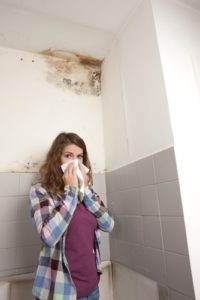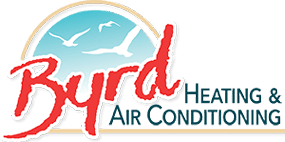 Mold is a problem that can strike at any time of the year. While most people have their bleach solutions at the ready during warm and humid days, not everyone realizes that mold can become an issue beyond the summer season as well. During the winter, in particular, certain conditions provide the ideal breeding ground for molds. If left unchecked, this can cause an unhealthy living environment for you and your family; therefore, it’s vital that you actively combat this nasty fungi. Learn more about mold, where it may develop in the winter, and the steps you should take to prevent or eliminate it.
Mold is a problem that can strike at any time of the year. While most people have their bleach solutions at the ready during warm and humid days, not everyone realizes that mold can become an issue beyond the summer season as well. During the winter, in particular, certain conditions provide the ideal breeding ground for molds. If left unchecked, this can cause an unhealthy living environment for you and your family; therefore, it’s vital that you actively combat this nasty fungi. Learn more about mold, where it may develop in the winter, and the steps you should take to prevent or eliminate it.
Mold Basics
Molds serve a necessary purpose in nature and do have their benefits. They rot and break down organic matter, such as trees and leaves. They are used to create penicillin and treat various illnesses. Many types of mold exist, but none can thrive without the presence of moisture. Reproduction happens through their microscopic spores, which are constantly floating through both outdoor and indoor air. The spores land on surfaces inside buildings, lying in wait for the right combination of moisture, humidity and nutrients. When the right mix of conditions occurs, mold begins to grow.
While it’s obvious that summers in coastal Georgia can lead to the perfect breeding ground for molds, you may not be aware of winter conditions that can encourage growth. Molds can develop when the temperature variance between your heated indoor environment and the uninsulated, cold outer walls and windows produce water vapor that condenses in areas of your home. From there, the sneaky fungi can start taking over, often in places you may not notice right away, such as your closets or attic.
Molds and Your Health
Health issues can arise when molds gains a foothold inside your home. Molds create irritants, allergens and even toxic substances (though not as common). Many people experience allergic reactions, but even those who are not sensitive to molds may fall victim to their ill effects. Symptoms can include breathing problems, headaches, and irritation of the lungs, nose, throat, eyes and skin. If someone in your home is both asthmatic and allergic to molds, exposure can trigger an asthma attack. Factors including a person’s age and the degree and length or exposure will impact the severity of the reaction.
Clean-Up Tips
If you’ve see mold growing in your home, take care of it immediately using the following steps:
- Wear gloves and a face mask.
- Use a bleach solution to kill the molds. Scrub until the molds are gone.
- Dry the area thoroughly.
Note: Never paint or caulk over moldy spots. Always perform the above steps first.
You may need to call in an experienced contractor if the mold’s growth has become too severe. Following are some conditions often best left to the pros:
- You believe there could be molds growing in, on or around your HVAC system.
- Contaminated water or sewage is the cause of the mold and/or moisture issue.
- Molds have taken over an area larger than 10 square feet.
- You have health issues and are concerned they may be exacerbated by cleaning up mold.
Prevention
Once you’ve taken care of any mold you’ve noticed in your home, continue to be diligent about preventing its return by sticking to the following guidelines:
- Clean and thoroughly dry any areas where there’s excess water right away (molds begin growing on water-damaged items and surfaces in about 24 to 48 hours).
- Swiftly repair water leaks.
- Clean the surface areas of your home a couple of times per week.
- Vacuum once every week, at minimum.
- Immediately wash any clothing that has food stains or is damp and dirty.
- Use washable rugs and floor covers in locations where you know water tends to collect.
- Clear your refrigerator pans frequently.
- Don’t keep too many indoor plants, as mold can grow in the soil.
- Keep your attic and crawl space well ventilated.
- Prevent mold’s access to your house through the ground by putting a plastic cover over the dirt floor in your crawl space.
- Use a dehumidifier and/or your air conditioner to reduce humidity in the home.
- Get an ultraviolet light filtration system installed. The lights destroy microbial buildup in your HVAC system, which keeps mold spores and other microorganisms from being distributed into your breathing space.
If you need an HVAC contractor to help you fight mold in your Savannah area home, please contact us Byrd Heating & Air Conditioning anytime.
Image Provided by Shutterstock.com



